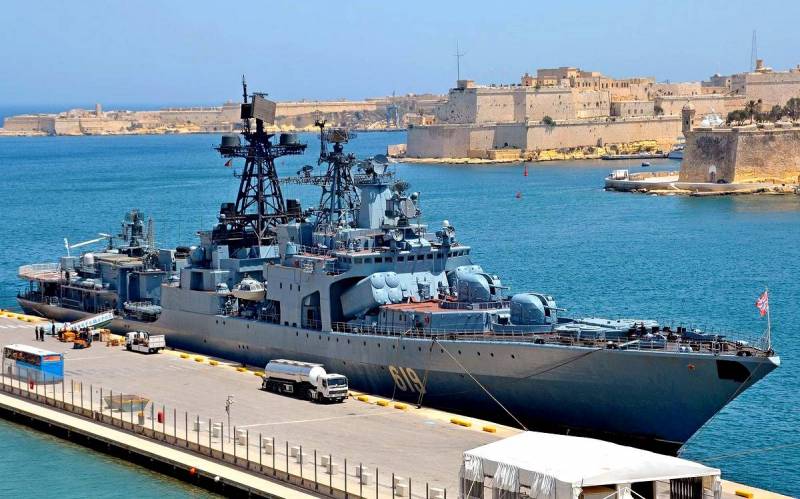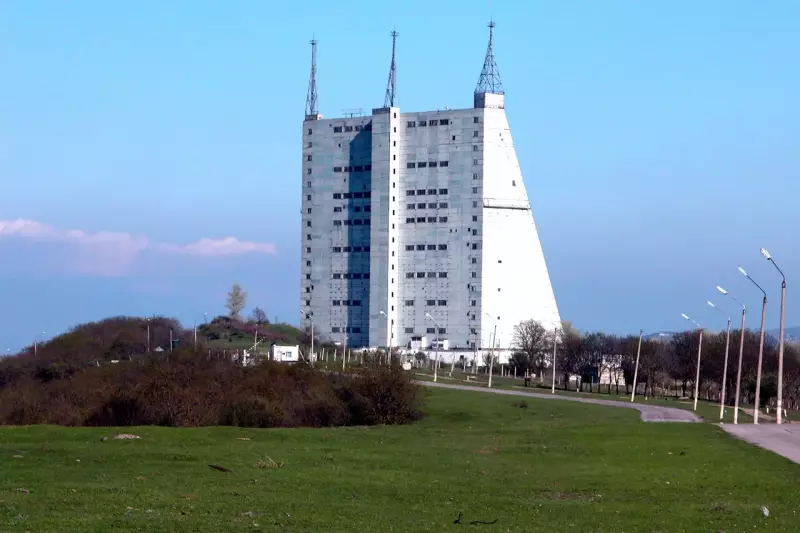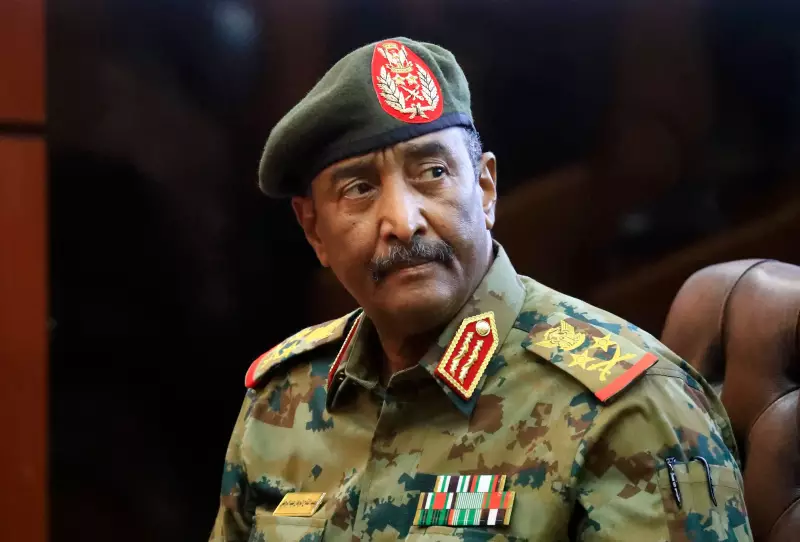Safe haven: Sudan decided on a Russian naval base

Source: www.cezarium.com
Khartoum thinks
Russia now does not have many military bases around the world. More precisely, quite a bit. The vast majority of objects are concentrated in the near abroad, in the so-called territory of Russia's interests.
If you look at the chronology of the development of events, then our state has been slowly but surely reducing its military presence in the world in recent decades. The most significant was the Cuban radio-electronic center in Lourdes, which the army left in 2001. It was the closest military base to the United States, albeit exclusively for intelligence.
A little later, they disbanded and withdrew all the ships from the Vietnamese base Cam Ranh, one of the best deep-water ports in the world. The most important military facility of the Russian army was able to receive and service strategic bombers, submarines and missile cruisers. A strong outpost in the heart of the US-Chinese confrontation would have turned out now. But stories does not know the subjunctive mood. In fairness, Cam Ranh is still occasionally used by the Russian Aerospace Forces, but it is very far from the level of cooperation from the times of the USSR.
After leaving the far abroad, of course, the time has come for nearby military bases. The Russians finally left Georgia in 2007, including from the largest base in the Caucasus in Vaziani. Before that, two divisions and one airborne regiment were disbanded and withdrawn. In 2012, they said goodbye to the Gabala radar station in Azerbaijan. Even Kazakhstan has reduced the Russian military presence by eliminating the test cosmodrome, the transport regiment aviation and the Emba test site.
It is necessary to consider the latest events in Ukraine through the prism of the previous losses of Russian influence. They retreated from everywhere under the contented hooting of enemies, and now they are forced to resolve issues not at all with soft power.

Gabala radar. Source: amikamoda.ru
Currently, the most important outpost of Russia in the far abroad is the naval base and aviation group in Syria. The sea at hand is very important - the Mediterranean, and the transport arteries are within easy reach.
According to information sources, in the near future Russia will have another point on the map - Port Sudan. The Sudanese authorities have long and carefully reviewed the conditions for the presence of three hundred Russian military and four ships on their territory and finally decided on permission. For comparison: the only American military base in Africa in Djibouti consists of 2,5 thousand troops.
The exact name of the facility in Port Sudan is the logistics center of the Russian Navy and, as far as is known, the agreement does not limit the number of ships on the roads. The plans include signing a lease document for 25 years with a further extension for another ten. If the parties have no objections.
The history of the Russian presence in Sudan has been going on since 2017, when Vladimir Putin agreed with former President Omar Hassan Al-Bashir. The leader of Sudan demanded a lot for the deployment of the base - Su-30 and Su-35 fighters, S-400 air defense systems and even compact floating nuclear power plants. In addition, Russia had to help with the construction of a cascade of hydroelectric power stations on the mighty Nile.
In general, for a tiny naval base by world standards, Sudan demanded almost the modernization of its energy and army. Al-Bashir was also a so-so handshake head of state - in 2008 he was prosecuted at the International Criminal Court on charges of genocide in Darfur. Russia did not recognize the claims of the West to the Sudanese president, but did not particularly accelerate the rapprochement with the controversial Omar.
In 2019, there was a military coup, behind which, according to various sources, was the current Chairman of the Transitional Sovereign Council of Sudan, Abdel Fattah al-Burhan. And he already looked at cooperation with Russia differently.

Abdel Fattah al-Burhan is the new ruler of Sudan. Since 2019, Russia has been talking to him. Source: foreignpolicy.com
A small digression is needed here, explaining the history and significance of Sudanese-Russian relations.
In many ways, Khartoum owes its statehood to our country. After 1956, when diplomatic relations were established between the states, the Soviet Union created a powerful industrial base for agriculture in Sudan. The sovereignty of the state was supported by the supply of weapons and other critical infrastructure. Much later, it was Russia that became the country's key grain supplier.
A break in relations between the two countries occurred in 1977-1989, when pro-Western leaders came to power. Under the aforementioned Omar al-Bashir, since 1989 there has been a noticeable increase in work. Russian military advisers were constantly based in Sudan, and economic ties were expanding. But the East is a delicate matter, and the East of Africa even more so. The new master of Sudan, al-Burhan, took a break in 2021 in the hope of the favor of the United States. The military coup, which ended the 30-year rule of al-Bashir, was supported from Washington, and many sanctions were lifted from Sudan. They stopped fearing an American invasion in Khartoum, which made Russia's military presence, albeit so modest, not look so advantageous.
As a result, in 2021, Khartoum demanded from Moscow instead of the base "economic assistance subject to a lease for five years with the possibility of signing an agreement for 25 years." This is in addition to the considerable supply of military equipment, which was agreed upon with the former leader of Sudan.
Khartoum changed its mind
On February 11, 2023, it became known that the top officials of the Republic of Sudan finally agreed to the deployment of the Russian contingent in Port Sudan. Under what conditions is not entirely clear. It is only known that Sudanese officials commented to the Associated Press:
What were the fears, one can only guess. At the same time, it is too early to say that everything has been finally decided. Foreign Minister Sergei Lavrov specifically specified the need for the ratification of the agreement by the legislative body of the Republic. Which, by the way, has not been formed since 2019.
Even before the special operation in Ukraine, some commentators had doubts about the advisability of building a military base in Port Sudan. And now, in the light of the upcoming ratification, there are even more questions. The fact is that the NVO did not paralyze the Russian Navy - they still provide a presence in the most remote points of the oceans. For example, in Indian, to which you need to walk half the world, and then return. And so several times. Supply ships and hospital ships are operating, crews require regular rotation. The logistics base on the Red Sea is very useful in this case. If an agreement can be reached with Khartoum, then through Sudan it is possible to organize the transfer of personnel and equipment by air.
The location of Port Sudan is unique in its own way. On the one hand, the strategic Bab el-Mandeb Strait, and behind it a large NATO base in Djibouti. On the other hand, the no less strategic Suez Canal. And right under the noses of our sailors will be the most important logistics routes of the Red Sea, through which millions of tons of cargo pass every day. Given the increased importance of gray routes for sanctioned goods for Russia, control of such communications is not superfluous at all.
Simply put, the base in Port Sudan is now more important for our country than in 2019. The presence of the Russian contingent, also spiced with missile weapons, will make those passing by count.
Moreover, there was information about the possible opening of a similar facility in neighboring Eritrea. Allegedly, Sergei Lavrov agreed on this during the January trip to Africa. If this is true, then Eritrea will not trade like Sudan. The country has long been under Western sanctions, and any financial injection will be perceived as manna from heaven.
It remains only to hope that the Kremlin correctly prioritizes and calculates its forces.
Information